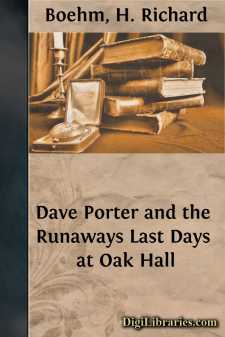Categories
- Antiques & Collectibles 13
- Architecture 36
- Art 48
- Bibles 22
- Biography & Autobiography 814
- Body, Mind & Spirit 145
- Business & Economics 28
- Children's Books 17
- Children's Fiction 14
- Computers 4
- Cooking 94
- Crafts & Hobbies 4
- Drama 346
- Education 56
- Family & Relationships 59
- Fiction 11833
- Foreign Language Study 3
- Games 19
- Gardening 17
- Health & Fitness 34
- History 1378
- House & Home 1
- Humor 147
- Juvenile Fiction 1873
- Juvenile Nonfiction 202
- Language Arts & Disciplines 89
- Law 16
- Literary Collections 686
- Literary Criticism 179
- Mathematics 13
- Medical 41
- Music 40
- Nature 179
- Non-Classifiable 1768
- Performing Arts 7
- Periodicals 1453
- Philosophy 66
- Photography 2
- Poetry 897
- Political Science 203
- Psychology 45
- Reference 154
- Religion 516
- Science 126
- Self-Help 85
- Social Science 82
- Sports & Recreation 34
- Study Aids 3
- Technology & Engineering 59
- Transportation 23
- Travel 463
- True Crime 29
Our website is made possible by displaying online advertisements to our visitors.
Please consider supporting us by disabling your ad blocker.
People of Position
by: H. Richard Boehm
Description:
Excerpt
PROLOGUE
Grierson refilled the magazine of his rifle carefully—when you are dealing with South American patriots it is better to take no chances, even though the enemy has retreated—then he wiped a couple of half-dried blood spots off his cheek, and, after that, went over to where lay the body of the man from whom that same blood had spurted.
For a full minute he stood very still, gazing with sombre eyes at the kindly face which seemed to be smiling back at him even in death; then he knelt down, and, with infinite gentleness, smoothed the ruffled hair, arranged the collar so as to hide the bullet hole in the bronzed throat, and crossed the hands on the breast. When he got up again his face was twitching strangely, seeing which, the American officer, who had come up behind him, suddenly became busy with his men.
It was one of those stories which seldom get into the newspapers, possibly because they are so utterly unimportant in themselves—a ragged band of half-breeds robbing and murdering in the name of liberty; a landing party of marines from the nearest warship, which happened to be American; and a futile little fight ending, as usual, in the defeat of the brigands. Only this time, an Englishman, who had gone out with the marines, had been killed; and now Grierson, his friend, was trying to realise the fact.
"He was awfully good to me, the whitest man that ever stepped. I met him down the coast a year ago—my luck was right out—and he brought me along with him. I hadn't had a proper meal for days, much less a smoke, and he'd only my word for who I was. Yet he risked it, and I've been here ever since." Grierson, who had been walking in silence beside the marine officer, spoke suddenly.
The American nodded sympathetically. "It was hard luck to be killed by a rotten Dago outfit like that. Whenever you get a coloured man talking about liberty you know he's just prospecting round for a chance to break the Eighth Commandment."
Grierson muttered a curse; then, as if he wanted to confide in someone, possibly as a relief to his own feelings, "His partner will be here in a week's time; he was on his way already. When he comes I shall clear out and go home."
Captain Harben nodded again. "Meaning England?" he asked.
"Yes, England—London. I've had ten years knocking about the world—China, India, Australia, and all round this forsaken continent; and the sum total of what I've got to show for it is the fever and a couple of knife scars in my back—patriots again, one Hindu, one Peruvian. So I think I had better go home and begin afresh—if I can." And he gave a bitter little laugh.
The American glanced sharply at the tall, thin figure and haggard face. When they had started out that morning to drive the saviours of their country out of the spirit stores they were looting, Grierson had struck him as a keen youngster with a rather infectious laugh, and his appreciation had been increased by the way in which the other had dropped a running insurgent at four hundred yards' range; now, however, the captain found himself wondering whether, after all, it was not too late for his companion to talk of beginning life afresh.
At dinner that night he expressed his doubts to the Consul, who shook his head. "Locke, the man they killed to-day, told me young Grierson had been through a pretty rough time, touched rock bottom. He was going into the British Army, but had to throw it up, and went out to the Orient for some Company which failed soon after, leaving him stranded. Since then everything he had been in has turned out wrong; and now this has gone.... Queer how some men do get the cards dealt them that way.... He's clever, writes very well, and might have done something at it. Locke's death will be an ugly blow to him." Being a kindly man and none too successful himself, he sighed in sympathy, then mixed another whisky and soda, and passed on to official matters.
A little later Captain Harben harked back to the former question. "He's got plenty of pluck. He was all there when it came to a fight. I like him."
"So do I," the other answered, "only I guess pluck of that sort won't help him much in England, and you know, or at least I know, that a fellow who's knocked about a lot doesn't suit civilisation, or civilisation doesn't suit him—put it which way you like, the result is the same....



